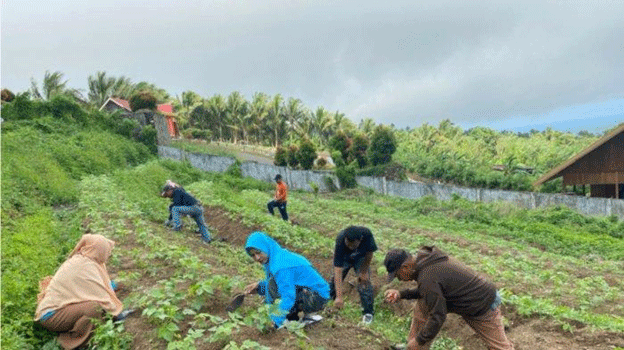The BPP in Bontomanai has taken proactive steps to enhance agricultural productivity by utilizing its land for innovative farming practices. Under the guidance of Meysudarjum, the Head of Extension and Coordinator of the Demonstration Plot Team, the BPP has developed a variety of crops, with a particular focus on chili cultivation.
One of the standout innovations applied at the BPP is the drip irrigation system, which has proven to be significantly more water-efficient than traditional irrigation methods. By delivering water directly to the plant roots in controlled amounts, drip irrigation minimizes water wastage and ensures that crops receive the precise amount of moisture they need to thrive.
Impact on Crop Yields
The introduction of drip irrigation at BPP Bontomanai has had a notable impact on crop production, particularly for tomatoes and chili peppers. According to recent data from the BPP’s experimental plots, the implementation of drip irrigation has resulted in a yield increase of up to 30% compared to conventional irrigation practices.
This increase in productivity highlights the potential of drip irrigation to address both water scarcity and food security challenges. In regions where water resources are limited, the adoption of such systems can lead to more sustainable and profitable farming operations.
Ongoing Training and Farmer Engagement
The success of the BPP Bontomanai initiative is not just in the technology but also in the continuous education and training provided to local farmers. Weekly training sessions are held at the BPP, where farmers are invited to learn about various agricultural topics, including advanced land management techniques and the benefits of modern irrigation systems.
This hands-on approach to farmer education has been well-received by the community. Israil, a farmer from the nearby village of Bontomarannu, expressed his appreciation for the program: “I have learned how to manage my land better, and my harvests have improved significantly.”
Challenges and the Path Forward
Despite the successes, challenges remain. Some BPPs still face issues such as inadequate facilities and occasional water shortages, which can hinder the full potential of these programs. There is a pressing need for continued government support to upgrade facilities and ensure a steady water supply, allowing these initiatives to achieve their maximum impact.
The BPP Bontomanai’s use of drip irrigation serves as a powerful example of how targeted agricultural innovations can enhance crop productivity and improve farmer welfare. By combining modern technology with continuous farmer education, this initiative is helping to build a more resilient and productive agricultural sector. Continued support and investment in such programs are crucial for sustaining these gains and addressing the challenges that lie ahead.












